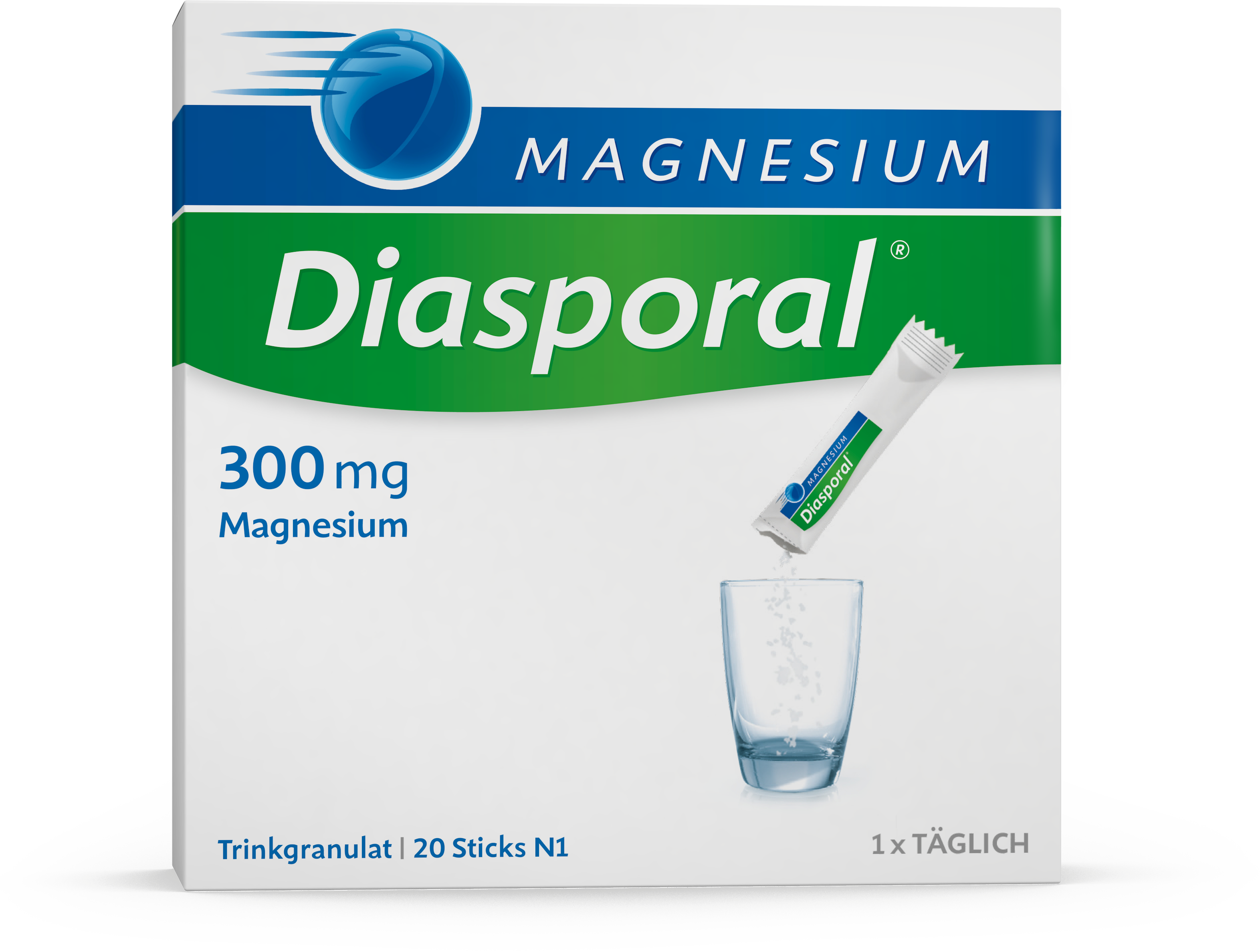
Magnesium during pregnancy and breastfeeding
THE IMPORTANCE OF MAGNESIUM FOR MOTHER AND BABY DURING PREGNANCY AND BREASTFEEDING
When a baby is conceived, a very special phase in life begins. Both the pregnant woman and the foetus undergo various stages of growth during which they need to receive key nutrients. But as joyful as a pregnancy can be, it places special demands on the body of the expectant mother. It now needs more of every nutrient, including magnesium. As a result, magnesium deficiency may occur during pregnancy. It can also happen if the mother breastfeeds her baby. It is therefore important to ensure sufficient intake of this mineral during pregnancy and breastfeeding. Incidentally, for people trying to conceive, magnesium has an influence on follicle maturation and the fertility of both partners.
WHAT IS THE ROLE OF MAGNESIUM DURING PREGNANCY AND BREASTFEEDING?
At which phases in life do we need magnesium? We need it at every phase. But we need it at certain times more than others. For example, during pregnancy and breastfeeding, the mineral is very important for both mother and baby. Before the birth, it supports cell division, which is essential for the growth of the foetus and the uterus. This promotes the development of the baby in the womb. Since magnesium is also involved in bone formation and bone density, an adequate supply in the womb and through breast milk can have a positive effect on a child's development until well into their teenage years, as studies have shown.
WHY DOES THE BODY NEED MORE MAGNESIUM DURING PREGNANCY AND BREASTFEEDING?
As the foetus develops in the womb, the body adapts to the demands placed on it. In doing so, it expends additional energy while also passing nutrients on to the baby. As the foetus grows bigger, it needs an increasing amount of magnesium. For this reason, pregnant women also need more magnesium. In addition, the mother's metabolism changes.
Magnesium requirements continue to remain high while breastfeeding. When a mother breastfeeds, she provides her baby with magnesium and other essential nutrients, such as vitamins, enzymes and antibodies, through her breast milk. This helps her newborn develop a resilient immune system. For a healthy start in life, babies need an adequate supply of minerals such as magnesium during pregnancy and breastfeeding.
Pregnant and breastfeeding women need to keep a close eye on their magnesium levels. A magnesium product from the pharmacy, such as flavourless Magnesium-Diasporal® 150 capsules, can help ensure adequate intake.
HOW CAN PREGNANT AND BREASTFEEDING WOMEN RECOGNISE A MAGNESIUM DEFICIENCY?
A deficiency that occurs during pregnancy can produce a range of symptoms. For example, a magnesium deficiency causes nocturnal leg cramps in 5 to 30 per cent of pregnant women. Other symptoms include:
- Muscle cramps
- Muscle spasms
- Tension
Pregnant women with the above symptoms who believe they may have a magnesium deficiency should consult their gynaecologist.
HOW CAN MAGNESIUM DEFICIENCY BE PREVENTED DURING PREGNANCY?
Magnesium is essential for the development of the baby in the mother's womb. Expectant mothers should therefore monitor their magnesium levels closely throughout the pregnancy. This is because the baby obtains magnesium from the mother's body.
Since women often develop a more acute sense of taste during pregnancy, they should look for products that are flavourless, small and therefore easy to swallow.
HOW CAN MAGNESIUM DEFICIENCY BE PREVENTED WHILE BREASTFEEDING?
Breastfeeding creates a very special bond between mother and baby. This bond promotes the mental and physical development of the newborn, as breastfeeding provides warmth, security and comfort. At the same time, breast milk provides the child with all the essential nutrients, including magnesium, that are important for the immune system to function well. It is free of bacteria and has anti-infective properties. Furthermore, breastfed babies are less likely to develop allergies, diabetes or obesity.
During breastfeeding, mothers pass some magnesium on to their babies – an average of 3 mg of magnesium per 100 ml of breast milk. This is why it is important to ensure an adequate supply of magnesium even after giving birth. Mothers should be supplemented with this mineral while breastfeeding.
Breastfeeding mothers need to obtain sufficient amounts of magnesium and fluids. Daily supplementation with Magnesium-Diasporal® 300 mg granulated drink mix, the express1 magnesium, is recommended.
WHAT IS THE ROLE OF MAGNESIUM WHEN TRYING TO CONCEIVE?
When planning a family, it is recommended to take nutritional supplements right away. This can have a positive effect on fertility. An adequate supply of magnesium is important for the health of the body's cells. Moreover, scientific data suggest that magnesium also plays a role in fertility.
For example, scientists discovered that fertile men have higher magnesium levels in the body than infertile men. Magnesium is also required for sperm motility in the female reproductive tract.
People trying to conceive should therefore ensure that they are getting enough magnesium.



